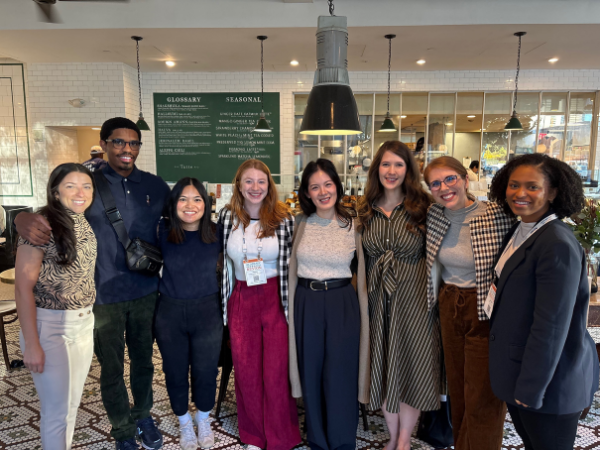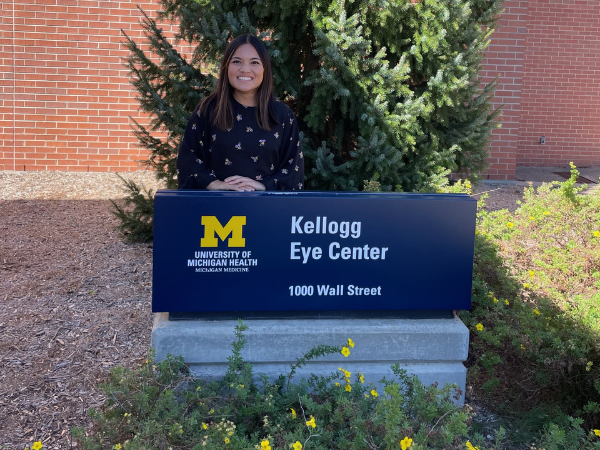Jackie Nguyen, OD, has built a career focused on pediatric eye care and academic excellence. She graduated from the University of California Berkeley Herbert Wertheim School of Optometry in 2021 and is now a clinical assistant professor at the University of Michigan Kellogg Eye Center, where she sees patients in the pediatric and low vision clinics. In this Q&A, Nguyen shares what inspired her to pursue a residency, why she chose pediatric optometry, what her experience was like at Vanderbilt Eye Institute, and how that year shaped her career.
What inspired you to pursue a residency?
As someone with diverse interests, I knew I wanted to be in an academic environment in my career. I knew that completing a residency was the next step toward achieving that goal.
Which residency did you complete and why did you choose this particular focus?
I completed my residency in Pediatric Optometry at Vanderbilt Eye Institute (VEI). I wanted a program that would prepare me for a career in academic pediatric optometry, and VEI was a perfect fit. I find myself happiest when working with children, and I knew I could make a positive influence on these patients. Residency was a way to receive additional training to refine and feel confident in my skills, especially with managing complex medical cases. There is nothing more rewarding than giving a child the opportunity to see.
Describe your residency experience. Provide a glimpse of your average day.
I loved my residency; it was truly a transformative year in my life. It provided an excellent balance between clinical and academic opportunities.
Every day, I was assigned to work with a different attending doctor, and I would see the patients on their schedule. Typically, I spent 3-4 days each week with a pediatric optometrist, 1 day with a pediatric ophthalmologist, and ½-1 day in low vision or specialty contact lenses. Most days I would see between 10 and 15 patients. The patient population was primarily failed vision screenings, amblyopia, strabismus, eye screenings for systemic diseases, and children with developmental delays. The diversity of patients made every day a new challenge. The best part of my residency was that I could modify my schedule to fit my interests. I knew I wanted to continue providing low vision care in my career, so I made sure to maximize my exposure during residency.
In the second half of my residency year, I had my own clinic a few times per month. This allowed me to practice with autonomy with the comfort of knowing one of my mentors was available if I needed help. This definitely helped with the transition to my current job.
Outside of direct patient care, I was able to shadow in pediatric sub-specialty clinics (cornea, uveitis, retinal dystrophy, neuro-ophthalmology) and surgeries so I could better educate my patients on multi-disciplinary care. I also got to work alongside orthoptists, ophthalmology residents, and pediatric ophthalmology fellows. Pediatric optometrists play a critical role in a pediatric ophthalmology setting, especially with a shortage of pediatric eye care providers nationally.
While I learned so much from seeing patients, having a formal academic curriculum was so valuable. I attended resident lectures, grand rounds, and participated in journal clubs. I traveled to 3 conferences and presented posters at each of them. The opportunity to speak on various topics allowed me to strengthen my public speaking skills. During residency, I was able to complete all of the requirements to apply for (and receive) the American Academy of Optometry (AAO) Fellowship.
Despite a very busy schedule, I made time to take advantage of everything Nashville had to offer. I joined a few running clubs and trained for a marathon. I tried new restaurants, explored the South, went to a few baseball/hockey games, and discovered my love for sweet tea!
When you began the residency, what were your future plans? How did the residency help clarify your goals?
My goal after residency was to work at an academic medical center, and that’s what I’m doing now! Residency affirmed this decision, and I just needed to find the perfect place to launch my career. The variety in my residency was something I knew I wanted to carry over in my daily practice, and I’m fortunate to be able to do that today.
 What were some lessons and/or experiences that stand out?
What were some lessons and/or experiences that stand out?
There were so many lessons I learned from residency. The most important is to ask questions--whether that is when you are seeing your patient to make sure you are getting a thorough case history, or asking your attending about a specific patient encounter. You won’t know unless you ask.
My favorite residency experience was Friday Lunch Club. Most Fridays in residency, our team would all go out for lunch. I think I tried most restaurants in Hillsboro Village by the end of residency. I still think about the truffle fries from Hopdoddy today…
In what ways has your residency shaped your career?
I wouldn’t be where I am today without my residency. I use all the tools and tricks I learned at VEI every day in my clinic. In my current practice, I continue to see patients, lecture ophthalmology fellows and other medical professionals, participate in research, and serve the optometry profession. I started going to PEDIG meetings during residency, and now I am the Principal Investigator for a PEDIG study at my institution. After obtaining my AAO fellowship, I knew I wanted to stay involved and now I serve as a member of the Fellowship Admittance Committee. I don’t think I would have pursued these opportunities if it weren’t for my residency.
What advice would you give to optometry students considering a residency?
It’s the year about you. Residency is the time to make mistakes and learn from them. Be curious and ask questions when you don’t know something!
